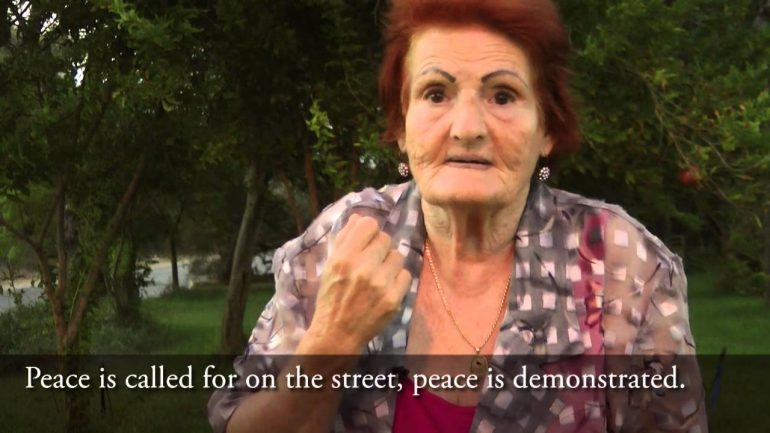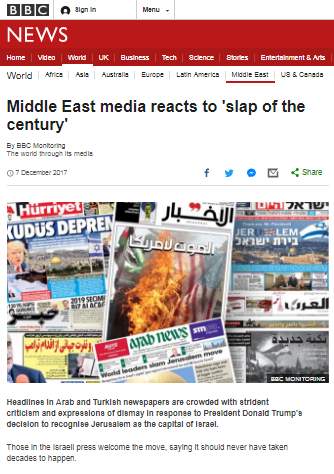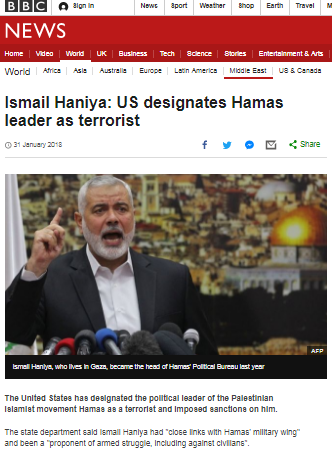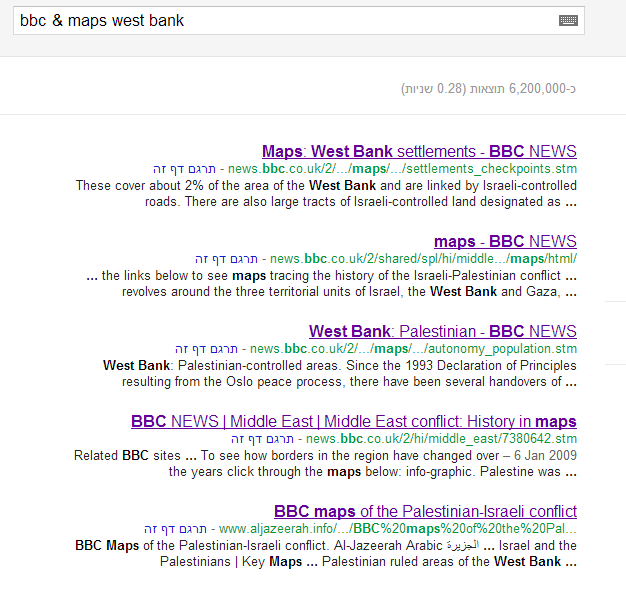As readers will no doubt be aware, the fourth and final round of releases of prisoners as a ‘goodwill gesture’ to the Palestinian Authority is scheduled to take place later this week. Many of those released in the previous rounds last August, October and December were convicted terrorists most – but not all – of whom committed their crimes before the signing of the Oslo Accords.
In its coverage of the previous rounds of prisoner releases the BBC’s reporting has largely focused on the celebrations of the events organized by the Palestinian Authority but notably, at no point has the BBC raised the question of how such displays of PA sanctioned glorification of terrorism fit into the ‘peace process’.
Some BBC reports have erroneously portrayed the convicted terrorists as “political prisoners” – thus promoting and amplifying the PA’s narrative – and there has been little coverage of the crimes the prisoners committed and even less coverage (with one exception) of the terrorists’ victims and their families.
Last October’s round of releases saw the BBC Jerusalem Bureau’s Yolande Knell promoting an emotional quote from the elderly mother of one of the released murderers in her report on the event.
“A prisoner’s elderly mother, Amuna Abed Rabbo, had come from Bethlehem in a wheelchair wearing her traditional embroidered dress. “Thank God my son returned back to me before I die. I have all the happiness in the world,” she said.”
Knell also promoted a photograph of the woman on Twitter.
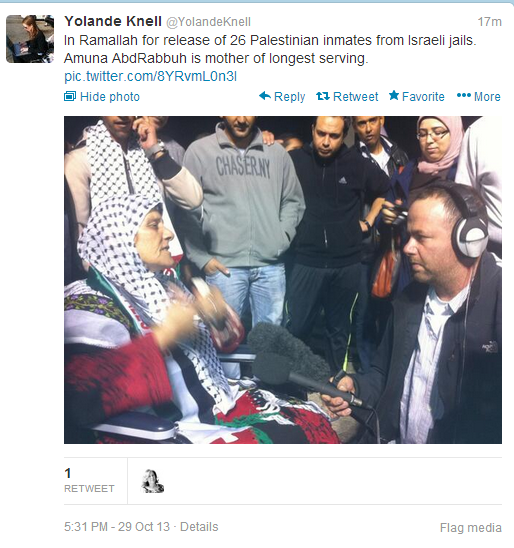
It would appear that we can expect more of the same in this round too, with the BBC Arabic producer Michael Shuval having sent the following context-free tweet on March 23rd.
Farida Daka’s son Walid is currently serving 37 years imprisonment for his part in the kidnapping, murder and mutilation of a nineteen year-old Israeli soldier named Moshe Tamam in August 1984. Like his three accomplices, Walid Daka (also spelt Daqqa or Dakah) was a member of the PFLP at the time.
Moshe Tamam’s mother is called Galia. Whether or not BBC audiences will be told about her tears – or those of any other family members of the victims of the terrorists scheduled for release – remains to be seen.

